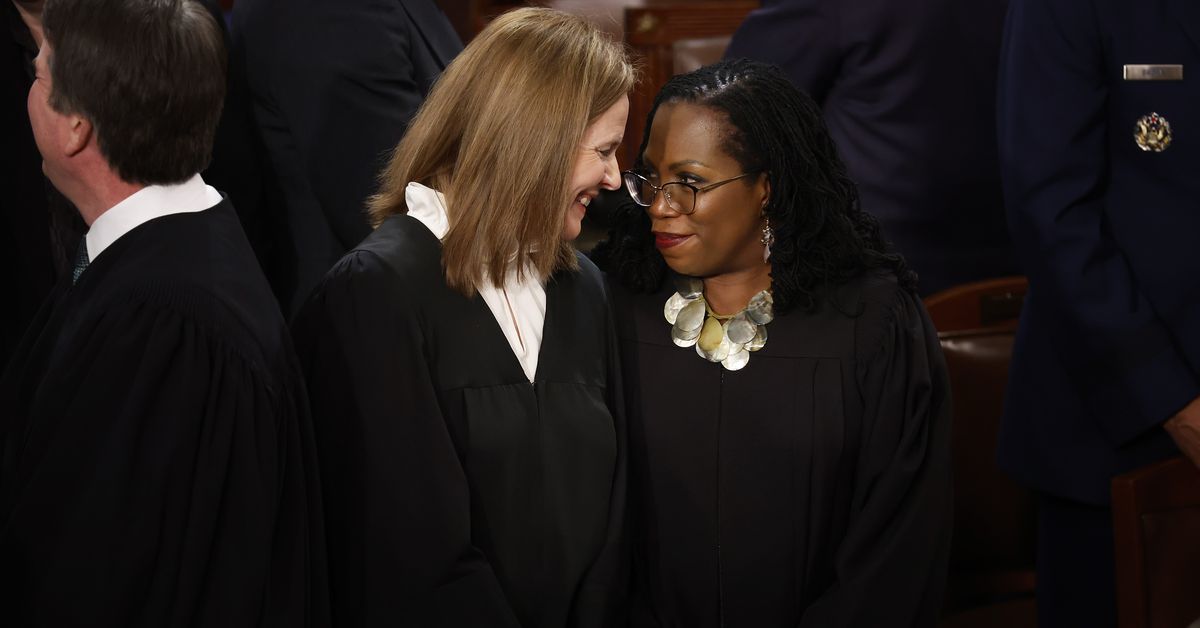Imagine that the Supreme Court of the United States spent an entire morning debating whether penguins are the primary cause of colon cancer or whether John F. Kennedy was assassinated by aliens from the planet Venus.
That’s more or less the quality of arguments that former Trump Solicitor General Noel Francisco presented to the Court on Tuesday, as part of a quizzical effort to convince the justices to declare an entire federal agency unconstitutional.
The good news is that the Court appears unlikely to buy what Francisco is selling. All three of the liberal justices took turns beating up Francisco, with an exasperated Justice Sonia Sotomayor telling Francisco at one point that she is trying to understand Francisco’s argument and is at a “total loss.”
Sotomayor appeared to be joined in her frustration by Justices Brett Kavanaugh and Amy Coney Barrett, two Trump appointees who showed little patience for Francisco’s attacks on the Consumer Financial Protection Bureau (CFPB), the agency that Francisco is urging them to strike down. Like Sotomayor, Barrett also repeatedly pressed Francisco to explain how, exactly, his proposed interpretation of the Constitution would actually work.
By the end of the argument, even Justice Clarence Thomas — ordinarily the most conservative member of the Court — appeared fed up with Francisco’s inability to articulate a coherent argument.
It seems very unlikely, therefore, that the Court’s decision in Consumer Financial Protection Bureau v. Community Financial Services Association will end in the CFPB being struck down — and that’s a very good thing. As the banking industry warned in a brief to the justices, striking down the CFPB would mean striking down the agency that writes the rules telling them how to comply with federal laws governing mortgages. Without these rules in place, the entire US mortgage market could seize up — taking out about 17 percent of the US economy in the process.
A decision against the CFPB, in other words, could usher in the kind of economic ruin that hasn’t been seen in the United States since the Great Depression.
Francisco also spent much of the Tuesday morning argument reiterating positions he took in his brief, which could invalidate a wide range of federal programs — including Social Security and Medicare.
At various points, for example, Francisco seemed to argue that the CFPB is unconstitutional because a federal law gives it “perpetual” funding, meaning that it is funded until Congress passes a new law withdrawing that funding. But nearly two-thirds of all federal spending is perpetual, including major social programs like Medicare, Medicaid, and Social Security.
The Community Financial case is before the justices because the United States Court of Appeals for the Fifth Circuit, an increasingly rogue court dominated by far-right Republicans, last year bought the argument that the CFPB is unconstitutional. The one good thing that can be said about that decision is that it now appears very likely to be reversed.
Even the current very conservative Supreme Court appears to recognize that the Fifth Circuit’s approach would sow far too much chaos and that it would give far too much power to judges.
So what is the constitutional case against the CFPB?
Francisco claims that the CFPB exceeds Congress’s power under a provision of the Constitution which provides that “No Money shall be drawn from the Treasury, but in Consequence of Appropriations made by Law.” As the Supreme Court said in Cincinnati Soap Co. v. United States (1937), this provision “means simply that no money can be paid out of the Treasury unless it has been appropriated by an act of Congress.” So, before the federal government spends any money, Congress must pass a law permitting it to do so.
The problem with Francisco’s argument is that Congress did pass a law, the Dodd-Frank Wall Street Reform and Consumer Protection Act of 2010, which funds the CFPB. So, under well-established law, Francisco’s arguments are flat-out wrong. Notably, before the Fifth Circuit’s decision in this case, no court had ever held that any act of Congress violates the Constitution’s Appropriations Clause.
As several justices repeatedly pointed out during their increasingly frustrating interrogation of Francisco, Trump’s former solicitor general had a difficult time pinning down why, exactly, he thinks the CFPB is unconstitutional. But he did seem to be arguing for two novel new limits on Congress’s power to spend money.
At various points, for example, Francisco seemed to fault Congress for not appropriating a “fixed” sum of money to the CFPB. Instead, Congress passed a law that allows the CFPB to spend up to a certain amount of money. In 2022, the total amount of money CFPB was allowed to spend was capped at $734 million, and this cap increases each year with inflation.
But, as both Solicitor General Elizabeth Prelogar and many of the justices pointed out, there are gobs of federal laws — both modern and historical — that permit a federal agency to spend up to a specified cap. The 2022 legislation providing most agencies with their annual funding, for example, contains more than 400 provisions that appropriate funding “not to exceed” a certain amount.
At other points, Francisco criticized the fact that the CFPB has a “perpetual” funding stream. Again, this is a common feature of US appropriations that also stretches back 230 years. Most federal spending is perpetual, including Social Security and Medicare.
In fairness, Francisco didn’t actually urge the justices to invalidate the majority of federal spending. At various points, he tried to argue that the CFPB’s funding bill is unique in some way that would allow the justices to strike down this one agency without also invalidating most of the rest of the government.
But his attempts to limit the scope of his argument produced baffled responses from many of the justices, several of whom were quite open about the fact that they couldn’t even understand the lines Francisco was trying to draw — hence Sotomayor’s comment that Francisco’s arguments left her at a “total loss.”
Barrett, for her part, asked several questions trying to pin down how, exactly, Francisco’s proposed rules would work. If Congress cannot enact a “perpetual” appropriation, for example, then how long may an agency be funded before that funding goes on for too long? If Congress must provide agencies with specific instructions about how much money it can spend, how specific is specific enough? And which actual words in the Appropriations Clause impose the limits on Congress that Francisco proposed?
Kavanaugh, meanwhile, was largely quiet throughout the argument, but he did pipe up a few times to ask why the CFPB’s funding is constitutionally problematic, so long as Congress retains the power to repeal that funding at a future date. When Francisco complained that the president could veto such a repeal bill, Kavanaugh pointed out that Congress could threaten to defund other agencies (which receive annual appropriations) in order to pressure the president to agree to a law changing the CFPB’s funding structure.
Indeed, while some members of the Court’s right flank initially appeared open to Francisco’s arguments, their patience seemed to thin as the argument went on. In his last exchange with Francisco, for example, Thomas asked the former Trump solicitor general to complete a sentence for him: “Funding of the CFPB violates the Appropriations Clause because …”
In response, Francisco criticized Congress for “delegating to the director” of the CFPB the power to decide how much money the agency will spend in a given year, subject to the congressionally imposed cap. But that’s nothing more than a restatement of his earlier argument that Congress must specify a “fixed” amount of spending in its appropriations bills.
In any event, when one of the justices who is most inclined to agree with a lawyer’s policy views needs that lawyer to explain what, exactly, he is arguing — and when that question comes more than an hour into an oral argument — that’s a bad sign for that lawyer.
By the time the argument was over, only Justice Samuel Alito appeared to be a certain vote for Francisco’s poorly articulated position. And Alito, who is typically the most reliable Republican partisan on the Supreme Court, was reduced to incoherence himself — complaining at the end of the oral argument that he is concerned the Court’s decision in Cincinnati Soap does not impose a sufficiently aggressive “limiting principle” on Congress.
So the good news is that a truly awful legal argument, one that has no basis in constitutional text and that would have catastrophic consequences if it were embraced by the Supreme Court, appears unlikely to win more than three or four votes even on this very conservative Court. And it may not win more than one or two.
It appears, at the very least, that there is some real daylight between the median justice and the arsonists on the Fifth Circuit.
As the old saying goes, a broken clock is right twice a day.
Why the fuck would someone be arguing to essentially destroy 17% of the economy?
former Trump Solicitor general Noel Francisco
Ah. A moron.
I wouldn’t celebrate just yet.
While the conservative “justices” may have appeared frustrated, they are still conservatives. They will usually choose the most harmful outcome, even if they must craft a unique and creative justification that sounds a little better than what was presented to them.
Their frustration could come from knowing they will need to work harder in their written opinions to creatively justify the harmful outcome they seek.
Someone forgot to pay them off again
This is the best summary I could come up with:
Imagine that the Supreme Court of the United States spent an entire morning debating whether penguins are the primary cause of colon cancer or whether John F. Kennedy was assassinated by aliens from the planet Venus.
That’s more or less the quality of arguments that former Trump Solicitor General Noel Francisco presented to the Court on Tuesday, as part of a quizzical effort to convince the justices to declare an entire federal agency unconstitutional.
Francisco also spent much of the Tuesday morning argument reiterating positions he took in his brief, which could invalidate a wide range of federal programs — including Social Security and Medicare.
The problem with Francisco’s argument is that Congress did pass a law, the Dodd-Frank Wall Street Reform and Consumer Protection Act of 2010, which funds the CFPB.
As several justices repeatedly pointed out during their increasingly frustrating interrogation of Francisco, Trump’s former solicitor general had a difficult time pinning down why, exactly, he thinks the CFPB is unconstitutional.
In response, Francisco criticized Congress for “delegating to the director” of the CFPB the power to decide how much money the agency will spend in a given year, subject to the congressionally imposed cap.
The original article contains 1,467 words, the summary contains 197 words. Saved 87%. I’m a bot and I’m open source!
Alito […] was reduced to incoherence himself
…huh…didn’t expect that from such a distinguished jurist





